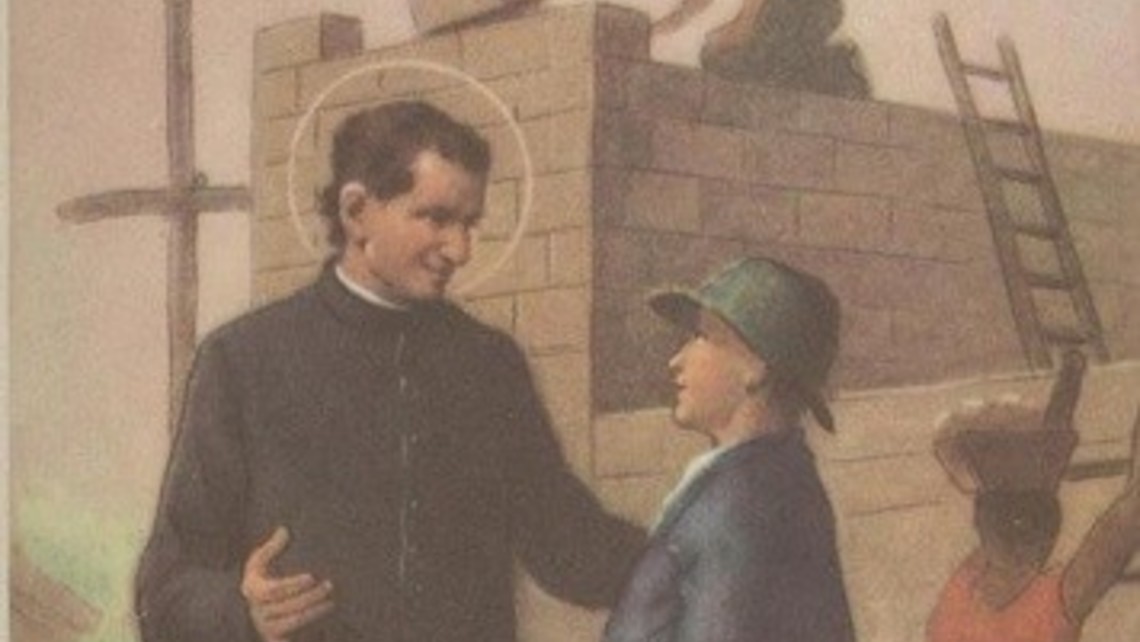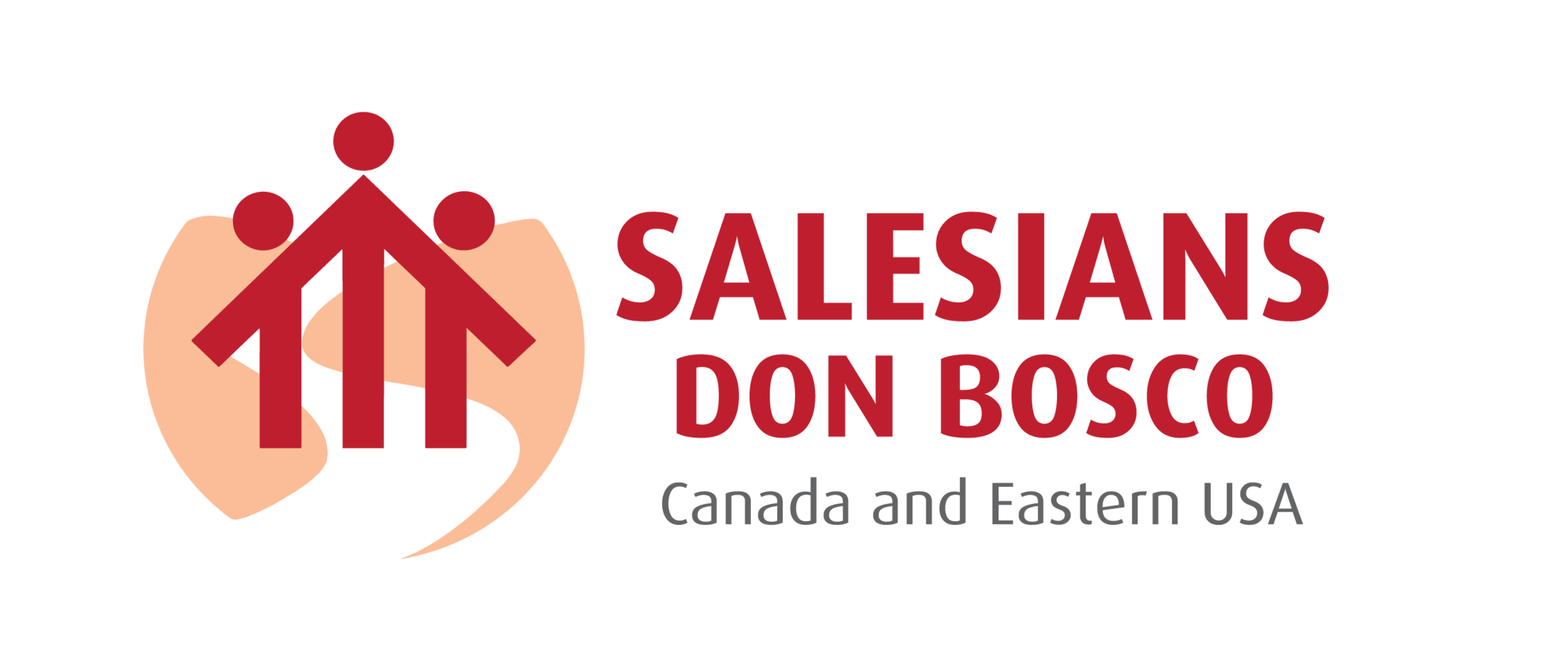
Text of the homily that Fr. Tim Zak delivered on Province Day, which was also the solemnity of St. Patrick in the archdiocese of New York.
It seems St. Patrick had a knack for getting into trouble and a flair for showmanship. In the year 433, Patrick lit the Paschal fire on the Hill of Slane, across from Tara, the political capital of Ireland at the time. This was the same night that the high king had forbidden any other fire to be lit in all the country, except the fire the Druid priests would light in Tara, and from that one flame, all the other fires would be reignited. Now Patrick probably could have stayed at the Christian camp and lit a small fire to celebrate Easter that would have gone unnoticed. That wasn’t his style. Even though the penalty was death, he went to the highest hill in the area and lit the biggest fire he could, so it would be seen by the high king and the Druid priests and infuriate them. He was bold! The Druids spoke a prophecy to the king that night: if the king did not extinguish the Paschal fire right away, it would spread throughout the entire land and consume them all. It was as if they foresaw the success Patrick and his companions would have to lead the people of Ireland to salvation in Christ. Where did Patrick get the strength to be so bold?
It came from the conviction that he had been called. He was able to put his own life at risk and make great personal sacrifices because he was convinced that God had sent him on this mission. Remember the voices Patrick heard, “We appeal to you, holy servant boy, to come and walk among us.” This occurred years after he had escaped from slavery, gone to France in search of God’s will, and returned to Britain to be reunited with his family. After hearing the voices call to him, he deepened his Christian formation and prepared for ordination, and then, firm in his vocation, set out on the mission to announce the Gospel in Ireland. This firm sense that he was on a mission from God gave him the strength to face opposition from the pagans in Ireland and the opposition of the clergy in Britain and Rome who were suspicious and jealous of his success.
Thinking about our own father and founder, we remember how some of Don Bosco’s colleagues considered him insane, how he faced tremendous opposition from political authorities and ecclesiastics. Like St. Patrick, for Don Bosco, the strength to continue came from his conviction that he had been called by God to this mission of serving poor youth. From the dream at nine to the concrete choices he made after ordination to the sacrifices he endured to found the Salesian Society, Don Bosco was committed to following his vocation.
These past few days at the spring leadership meeting, we have been considering the dynamics of disaffiliation in young Catholics. The statistics about young people who feel no connection with the Church are alarming. But as Salesians, rather than getting discouraged, we can renew our conviction that we have been called by God to reach out to these young people. This is our way of participating in the mission of the Church.
We feel blessed to be Salesians. We won’t allow ourselves to become discouraged by the difficult circumstances in which we find ourselves. The bold responses of St. Patrick and Don Bosco inspire us likewise to face opposition with great confidence in the heavenly Father who calls us. We deeply feel the urgency of the mission that has been given to us. Following the example of St. Patrick on the Hill of Slane, or Don Bosco the magician and juggler, some of us might have the flair of the showman to make a bit of a spectacle that attracts attention as we evangelize. We all can expect some opposition, misunderstanding, and fatigue, but we will not give up. We will be bold!
When he reached the shores of Ireland, the year before the incident with the Easter fire, St. Patrick began his mission building upon what he had learned as a slave—the language, the culture, the political system, the values of the people, how to gain the respect of the chieftains. He continued to learn about the people of Ireland from Irish Christians he met who will studying in Britain. Over time, he developed an effective, multifaceted strategy of evangelization. It included using his own experience of slavery as a way to identify with the oppression and poverty many of the people in Ireland experienced. He gained audiences with the chieftains and kings by offering material gifts, but quickly won over their hearts and souls to the life of grace, freely given. He obtained lands for the Christian community to sustain itself and establish itself in local society. Although he traveled throughout the country preaching, he set up local churches with local clergy to nourish the faith of the believers. He had a plan.
In the life of Don Bosco, too, we see the unfolding of a plan: clear goals and methodologies to further the mission of education and evangelization of the young. I don’t remember seeing Don Bosco’s SEPP written out with the eight columns and four rows that we are using now. Still, he decided to accept work or leave a work based on certain criteria, which we now call the Salesian spirit. We have the advantage of a century of reflection and discernment on the charism and can delineate elements of the Salesian spirit, priorities in the pastoral plan, effective methods to reach the young, collaborators with whom we share this work, and systems of evaluation and improvement. Even if the liveliness of the original Oratory appeared chaotic to the outsider, and I guess some of our works might appear that way too, there is an underlying plan that directed Don Bosco’s pastoral ministry. By clarifying the goals, strategies, and actions, we are better able to share responsibility with others, including the young people themselves. We can see that the work of God is not chaotic, but proceeds step by step, as the Spirit enables it and as we cooperate with the Spirit’s action.
One final observation about the great missionary St. Patrick. As a man of faith, one who had embraced the Cross, he was able to see how God can bring good results even from difficult circumstances. Being separated from his family and homeland prepared him to dialogue with different cultures. The lonely days and nights of tending the sheep as a slave became his school of prayer. The suspicions of the clergy became occasions for him to explain his mission. Don Bosco, too, was a man of great faith who came to see the hand of God in the difficult circumstances of his life. We recall the devastating effects of the death of his father and the death of Father Calosso, the poverty he accepted throughout life, the serious misunderstandings of bishops and cardinals. In these sorrowful experiences, Don Bosco learned to trust Divine Providence, to find God in poor youth, and to win the approval of Popes.
We knew that following Christ would require us to carry the Cross daily. With St. Patrick and St. John Bosco, however, we firmly believe in the joy of the Resurrection. The difficult circumstances of increasing numbers of youth people who leave the Church, diminishing numbers of vocations to consecrated life and priesthood, sexual and financial misconduct, and the breakdown of the family will not have the final word. As a community of believers, as Salesians of Don Bosco, we can go out to meet the young where they are; we can form our lay collaborators to share Don Bosco’s spirit and mission; we can continue on our path of conversion.
On this Solemnity of St. Patrick, the great missionary of Ireland, as we celebrate Province Day in the province of St. Philip the Apostle, let us be bold in living our vocation. God never tires of calling us to more intimate friendship, and knowing our limitations, God still entrusts us with the mission to educate and evangelize. We give ourselves generously and tirelessly to this mission, zealous apostles like Don Bosco, working according to a plan which welcomes the contributions of many people. When we meet difficulties, as we inevitably will, we will not be discouraged. We are people of faith. Christ, who overcame sin and death, can deal with whatever problems we encounter. Let us then thank God for our vocation, renew our commitment to follow his plan in our lives, and live the Gospel with joy and enthusiasm. Happy St. Patrick’s Day and happy Province Day to you all!






